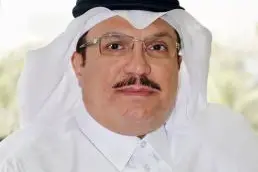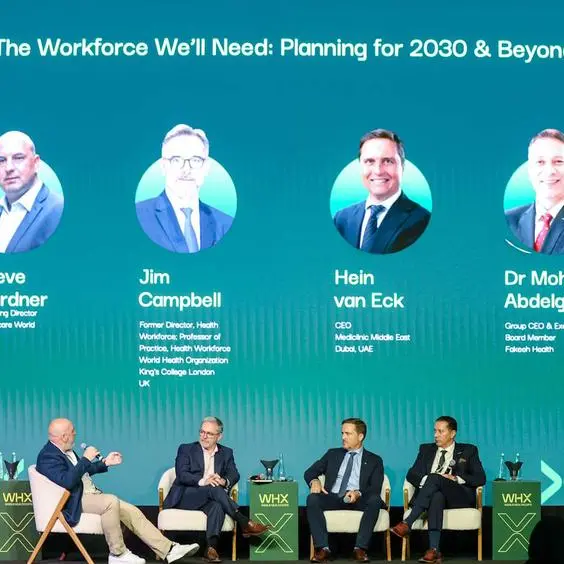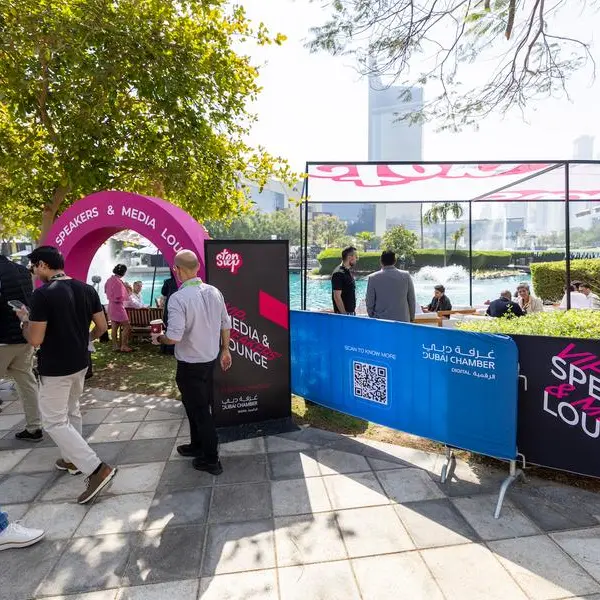PHOTO
The IMI Plus' data of the Gulf Organization for Industrial Consulting (GOIC) revealed that up until 2013, there were about 232 joint Gulf industrial ventures valued at approximately 23 billion USD and employing about 59.2 thousand workers.
In this regard, GOIC Secretary General Mr. Abdulaziz Bin Hamad Al-Ageel stated: "GCC governments were particularly interested in encouraging joint Gulf projects. The GCC unified economic agreement's 12th article had highlighted the importance of undertaking necessary measures to finance and establish joint private and public ventures, similarly to what was mentioned in the GCC unified industrial development strategy." Al-Ageel added: "GOIC's goals included offering suggestions to establish joint industrial projects between member states and delivering recommendations on methods of coordination between industrial development ventures." In addition to that, GOIC has introduced several Gulf investment opportunities and some of them have already been executed resulting in joint Gulf industrial ventures.
Benefits of Joint Projects
A joint Gulf project is any industrial venture established in the GCC region in collaboration between governments or private sectors of at least two Gulf states and with or without the participation of Arab or foreign capital. There are undoubtedly many economic benefits to these joint industrial projects, including: providing necessary capital to start industrial projects, notably megaprojects, as one state or one investor is incapable of launching such a venture on its/his own. The big extent of the regional market also helps receiving increasing production capacities, achieving economies of scale and interlocking domestic and regional production sectors. Thus, a joint economic integration base is created and the dependence of GCC economies on each other is increased through the integration of production elements targeted by these projects. Furthermore, joint ventures result in risk distribution among stakeholders and help resettling and transferring technology, should foreign stakeholders from developed countries take part in these projects.
Status of joint Gulf projects
According to GOIC's IMI Plus data, there were about 232 joint industrial projects with exclusively Gulf capitals in 2013. The cumulated value of these investments was estimated at about 23 billion USD and they offered jobs to about 59.2 thousand workers. On the other hand, there were 3015 joint Gulf-Arab-foreign projects with cumulated investments worth about 150.8 billion USD and employing around 360 000 workers.
Joint Gulf ventures constitute about 7.1 % of the total joint industrial projects, and the cumulated Gulf capital invested in joint Gulf projects is estimated at 13.2 % of the total invested funds in industrial projects.
The data reveal that the United Arab Emirates and the Kingdom of Saudi Arabia have scored the highest share of joint Gulf industrial projects (42.7% and 25%, respectively), followed by the Sultanate of Oman (12.5%), the State of Qatar (11.2%), the Kingdom of Bahrain (7.3%) and Kuwait (1.3%). As to investments in joint Gulf projects, KSA had the highest share (37.6%), followed by Qatar (19.5%), Bahrain (18.8%), Oman (13.9%), UAE (8.9%) and Kuwait (1.3%). Saudi Arabia also had the highest share of employments (about 37.1%) followed by UAE (35.2%) and other GCC countries.
UAE: the highest number of factories
UAE had the highest number of factories operating in the area of joint Gulf industrial ventures. There were 99 factories in UAE, a percentage of 42.7% of the total industrial projects in GCC countries, followed by KSA (25%), Oman (12.5%), Qatar (11.2%), Bahrain (7.3%) and Kuwait (1.3%).
Most of the operating factories were in the fields of chemicals and plastics. There were 65 factories operating in these areas (28% of the total joint Gulf factories), followed by construction materials industries with 43 factories (18.5%), food and beverage industries (14.2%), manufactured metal products (11.6%), basic metals industries (6%) and other industries (21.7%).
Chemicals: Highest share of investments
The total cumulated investments in joint Gulf companies were worth about 23 billion USD in 2013, not more than 13.2 % of the total invested funds in joint industrial projects. The chemicals, rubber and plastic sector had the biggest share of investments worth 11.2 billion USD (48.7%), most of them in Saudi Arabia and Qatar, followed by the basic metals industry with investments worth about 7.2 billion USD (31.2%), most of them in Bahrain, Oman and Saudi Arabia, and then construction materials industries (7.7%), food and beverage industries (4%) and other industries.
-Ends-
Gulf Organization for Industrial Consulting (GOIC) overview:
GOIC is a regional organization that brings together the United Arab Emirates, the Kingdom of Bahrain, the Kingdom of Saudi Arabia, the Sultanate of Oman, the State of Qatar, the State of Kuwait and the Republic of Yemen. It is based in Doha, Capital City of Qatar. It is an advisory knowledge-based institution aiming at developing regional industries by providing data, information, specialized researches, consultations and technical services for the public and private sectors in GCC countries. This organization is the top industrial consultations expertise hub boosting industrial development in GCC countries and Yemen. It seeks industrial integration and coordination between Member States and endeavours to shape a regional industrial policy.
Abir Jaber
Business Development Specialist/ "Industrial Cooperation in the Arabian Gulf" Magazine Editor-in-Chief
Head of Mass Communication & Media Production Unit
Gulf Organization for Industrial Consulting (GOIC)
Main: +974 44858888
Direct: +9744 4858717
Fax: +974 4413 8327
Email: aajaber@goic.org.qa
P.O. Box 5114, Doha, State of Qatar
www.goic.org.qa
Facebook: https://www.facebook.com/GOIC.QATAR?ref=hl
https://www.facebook.com/GOICGCC
Twitter: @GOICGCC
© Press Release 2015



















